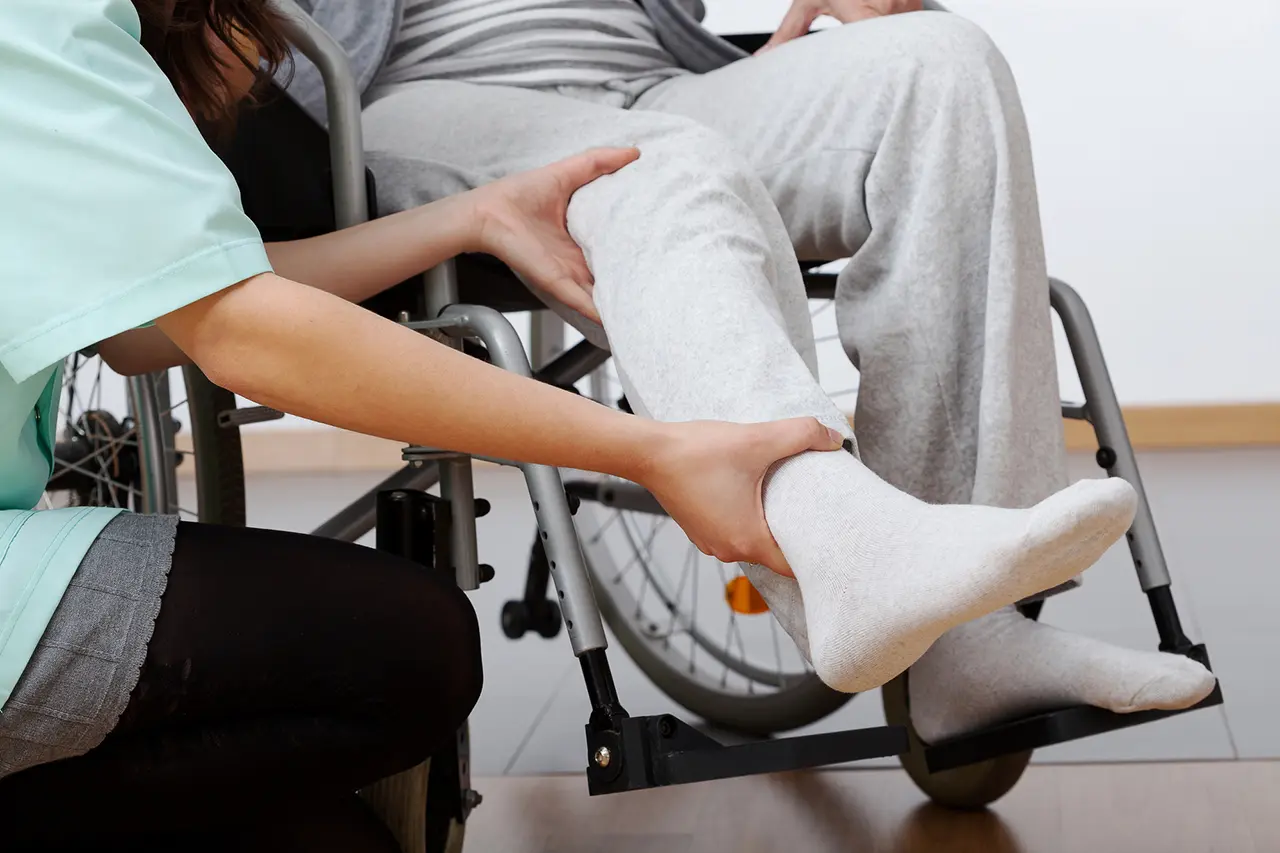
In Australia, we are fortunate as the NDIS recognises the importance of people with disabilities reaching their goals. NDIS physiotherapy not only helps participants set specific goals, but it also provides tailored interventions to address their unique needs whether it’s improved mobility or functionality.
NDIS physiotherapists- just like No Limits Healthcare’s NDIS physios start with a comprehensive assessment, where they identify limitations and design customised programs to improve mobility, balance, and overall functionality. They address physical challenges and enhance strength, flexibility, and coordination so that people can participate more fully in daily activities and social interactions. Whether it’s learning to walk independently, improving motor skills, or managing pain, NDIS physiotherapy empowers individuals to overcome barriers and achieve remarkable outcomes.
One of the primary goals of the NDIS is to enhance participants’ independence and mobility. Physiotherapy, with its focus on improving movement and function, becomes a key player in achieving this objective. Through tailored exercises and interventions, physiotherapists work towards increasing strength, flexibility, and coordination. This, in turn, empowers individuals to perform daily activities with greater ease, contributing significantly to their overall independence.
Physiotherapists employ a personalised approach, recognising the unique needs of each participant. Whether it’s addressing gait issues, improving balance, or assisting with transfers, physiotherapy interventions are designed to enhance mobility and instill confidence in individuals as they navigate their daily lives.
Living with a disability often comes with its share of pain and discomfort. NDIS physiotherapy offers a holistic approach to pain management, aiming not just to alleviate symptoms but to enhance overall well-being. Through a combination of manual therapy, therapeutic exercises, and modalities such as heat or cold therapy, physiotherapists work towards reducing pain and improving the quality of life for NDIS participants.
By addressing pain and discomfort, physiotherapy contributes significantly to individuals’ ability to engage in social activities, pursue hobbies, and maintain a positive outlook on life. This aligns seamlessly with the NDIS goal of fostering social inclusion and participation in the community.
NDIS physiotherapists and occupational therapists play a crucial role in identifying and scripting assistive technologies that align with the goals outlined in the individual’s NDIS plan. They can recommend adaptive equipment, mobility aids such as wheelchairs, or even customised orthotics. Through AT physiotherapists aims to enhance functionality and support individuals in achieving their objectives.
However, the integration of assistive technology is not just about providing tools; it’s about ensuring that people are trained and empowered to use these technologies effectively. Physiotherapists work hand-in-hand with participants, guiding them through the process of adapting to new devices and technologies, fostering a sense of autonomy and control over their environment.
Physiotherapy operates on a goal-oriented model, aligning seamlessly with the NDIS framework. Each physiotherapy session is structured with specific, measurable, and achievable goals that contribute to the larger NDIS plan. Whether the focus is on improving range of motion, building strength, or mastering a specific movement pattern, physiotherapists collaborate with participants to set realistic milestones.
Regular reassessment and adjustment of goals ensure that the physiotherapy interventions remain dynamic and responsive to the individual’s progress. This goal-oriented approach not only accelerates rehabilitation but also provides a tangible framework for tracking and celebrating achievements along the NDIS journey.
Physiotherapy extends beyond addressing immediate physical challenges; it embraces a holistic approach to health and wellness. This aligns seamlessly with the NDIS emphasis on promoting overall well-being. Physiotherapists consider factors such as mental health, nutrition, and lifestyle to create a comprehensive plan that addresses the diverse needs of NDIS participants.
Through education and guidance, physiotherapy empowers individuals to make informed choices that positively impact their health. This might include providing strategies for stress management, recommending suitable exercises for mental well-being, or offering nutritional advice. By integrating these aspects into the physiotherapy plan, individuals can experience a more holistic and sustainable improvement in their overall health.
As we saw above, physiotherapy plays an important role in empowering individuals with disabilities. From enhancing mobility and managing pain to integrating assistive technologies, setting rehabilitation milestones, and promoting holistic well-being, physiotherapy plays a multifaceted role in participants’ lives.
But ensuring optimal results often requires more than just working with the participant. It requires effective collaboration with fellow healthcare professionals and NDIS service providers as well. At No Limits Healthcare we engage in open communication with participants, their carers, and families, as well as the wider support network, fostering a comprehensive and coordinated approach. If you are your loved ones need NDIS physiotherapy, do not hesitate to reach out to our experienced team, we are more than happy to assist.